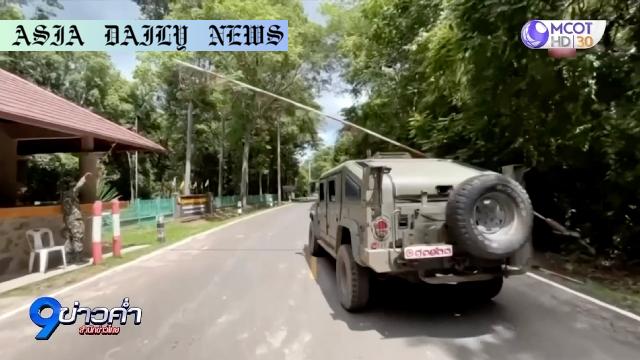Border Clash sparks Cambodia’s potential suspension of Thai imports if restrictions on border checkpoints persist.
Hun Sen, Cambodia’s Senate President, announced potential suspension of Thai imports over border checkpoint issues.
Tensions stem from last month’s military clash in a contested border region killing one Cambodian soldier.
Thailand restricted border checkpoint operations while Cambodia demands restrictions be lifted for normalcy.
Both parties aim to deescalate tensions through imminent discussions in Phnom Penh.

Introduction to the Cambodia-Thailand Border Clash
Recent events along the contested border between Cambodia and Thailand have heightened bilateral tensions. The conflict, which led to an exchange of fire last month, resulted in the tragic loss of a Cambodian soldier’s life. Cambodian Senate President Hun Sen has since expressed significant dissatisfaction with Thailand’s subsequent actions, which include restricting and reconfiguring the operations of several key border checkpoints. These actions have not only disrupted trade but also amplified prevailing tensions between the two neighbors.
Cambodia’s Firm Stance on Border Restrictions
Hun Sen has strongly criticized Thailand for its unilateral measures, claiming that these restrictions violate mutual agreements and hinder economic activities between the two countries. On social media, the Cambodian leader announced potential countermeasures, suggesting that Cambodia may suspend imports from Thailand if the restrictions persist. In addition, he called for a high state of military readiness, ensuring that Cambodian armed forces remain on a 24-hour alert should there be any further acts of aggression from Thailand. Despite the robust language, Hun Sen urged his citizens to avoid taking extreme actions or acting against Thai nationals, acknowledging the importance of maintaining a measured response to the ongoing crisis.
Backdrop of the Conflict and Escalating Regional Tensions
The month-old skirmish in the disputed border area that initially kindled these tensions underscores a long history of disputes over demarcation and territorial sovereignty between Thailand and Cambodia. Given the complexities of the border regions, disputes over land ownership are not uncommon. However, this specific clash was particularly alarming, as it led to not only human casualties but also disruptions in cross-border trade—a key element sustaining the livelihoods of numerous communities.
The Economic and Military Implications
If Cambodia does indeed suspend Thai imports, the economic ramifications could be significant for both nations. Trade flow across the border plays a crucial role in the local economy, especially for those residing in regions proximal to the disputed area. Beyond the economic fallout, the military buildup and state of alert ordered by Cambodia signal a period of heightened vigilance between Asia’s neighbors, potentially drawing international diplomatic attention.
Upcoming Diplomatic Efforts to Deescalate
With an understanding of the stakes involved, both governments have planned a high-level meeting in Phnom Penh this Saturday. The primary aim of this discussion is to deescalate tensions and negotiate a mutually agreeable solution, enabling the restoration of stability. Analysts anticipate that these talks will involve revisiting border agreements and determining measures to prevent further escalations. Such discussions will undoubtedly prove pivotal in shaping the immediate future of Cambodia-Thailand relations.



Commentary
Regional Conflicts and Their Impact on Bilateral Ties
The ongoing border tensions between Cambodia and Thailand remind us of how fragile regional peace can be, especially when historical disputes persist unresolved. While the confrontation may primarily seem like a bilateral issue, such conflicts often involve wider implications, whether through disrupted trade, diplomatic entanglements, or broader regional impacts. Cambodia’s insistence on maintaining a high level of readiness signals a strategic approach, but it also underscores the fragility of long-term peace agreements.
The Economic Ripples of Border Restrictions
Economic interdependence often serves as a stabilizing factor in international relations. This case, however, demonstrates how economic ties could also become a battleground, with trade serving as a pawn in broader geopolitical disagreements. Cambodia’s decision to threaten Thailand with import suspension is a bold move, placing pressure on Thailand for a swift resolution. However, such actions might also bear collateral damage, particularly for local economies on both sides that depend heavily on cross-border trade.
The Imperative Role of Diplomacy
While military readiness and countermeasures may provide a temporary solution, lasting peace and stability can only be achieved through diplomatic engagement. The upcoming talks in Phnom Penh offer a critical platform for both nations to chart a path toward reconciliation. Both parties have much to lose should the tensions escalate further, making these talks not just an opportunity but a necessity for sustained peace. Observers will be keenly watching the outcomes of this meeting, hoping it paves the way for a balanced resolution.
Conclusion: Lessons for the Future
Overall, the current skirmish between Cambodia and Thailand serves as a reminder of how crucial mechanisms for effective conflict resolution are in maintaining peace. Both nations must consider the long-term repercussions of their actions, not only for their economies but for fostering regional stability. Equally important is the role of global and regional organizations in mediating and supporting efforts to manage and resolve such disputes constructively.